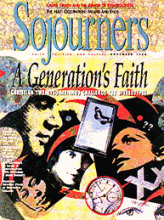For decades, incest survivors who attempted to discuss early abuse were met with skepticism, their accounts written off by professionals as imaginary manifestations of their own repressed desires. With the feminist and recovery movements in the 70s and 80s, however, survivors finally began to be taken seriouslyso seriously, in fact, that a few even succeeded in taking perpetrators to court and winning.
Now, just when survivors are finally gaining recognition from both the mental health and legal professions, "retractors" have begun accusing their therapists of "implanting" false memories of abuse. Groups like the False Memory Syndrome Foundation (FMSF), established in 1992 by parents who believe themselves falsely accused, argue that the pendulum has swung: Incest, once dismissed as a problem, is currently being defined as the source of all problems, these groups argue.
Critical issues are at stake. For survivors, it means once again having ones honesty or mental competency questioned, their stories now reflected not even as their own fantasies but as those of their therapists. And the debate will undoubtedly be used to further discredit and to silence victims, thus enabling abuse to continue.
It would be easy to discount groups like the FMSF as part of a conservative backlash. But dangers do exist in accepting wholeheartedly the arguments of either "side"; each has its stereotypes and oversimplifications. Politicization of the issue has distorted it as positions have polarized, all complexities have flattened out, and the individual has become lost in the conflict.
Important questions arise: How far back is it possible to remember? How reliable is hypnosis? Is verification possibleor even necessary? Can "feelings" of abuse serve as proof of it? Does the very act of remembering an event in some way alter it? And why would anyone remember a traumatic event that never took place?
Read the Full Article
